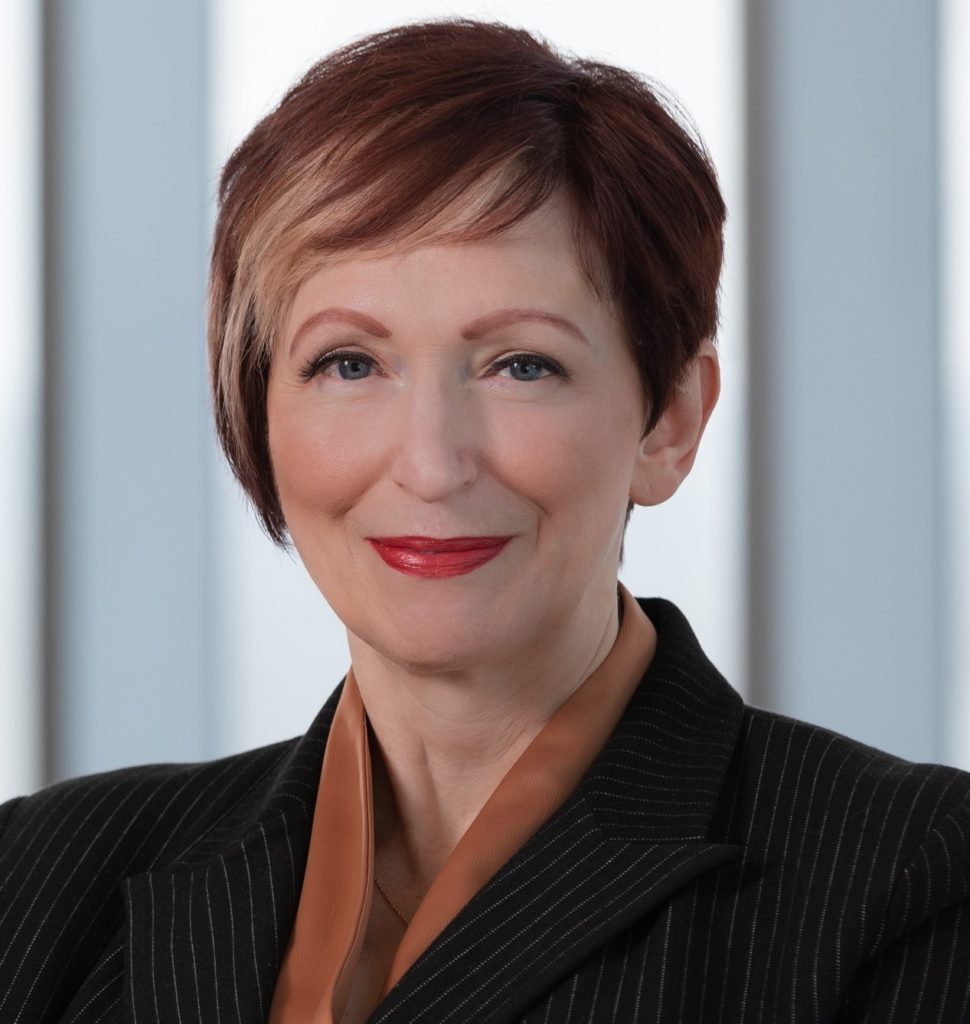By Lori Chesser, Davis Brown Law Firm Immigration Department Chair

What can we, who are not elected officials, do to promote unity in governance as called for by President Joe Biden? Governing is — or should be — different than campaigning. Elections are a win/lose proposition. The word “campaign” itself is a military term. Governing, on the other hand, is about solving problems and making life better for everyone.
My experience in politics is from advocating for immigration reform. My conclusion from this often frustrating exercise is that we get the politics we deserve. If we think and talk about governance as a battle, that’s what we get.
If instead we want to have unity, we must make room for dialog and, dare I say, love in our interactions.
Chiara Lubich, who founded a movement in the Catholic Church focused on unity, called politics “the love of all loves.” If that seems like a long journey from where we are now, “we the people” can take the first steps.
Some specific ideas I have gleaned over the years:
- Use care in talking about the “other side.” I have seen anti-immigration groups employ derogatory terms for immigrants to dehumanize them. Sadly, late-night hosts often do the same for politicians. The Rwandan genocide in the 1990s was fueled in large part by radio hosts calling the minority tribe “cockroaches.” We must respect each person no matter their views so that we can look them in the eye and have a conversation.
- Don’t assume another person’s beliefs. We love to categorize people. It’s efficient. It can also lead to missed opportunities for dialog. When working with the Immigration Service, I assume only that the person on the other side of the desk wants to follow the law, just like I do. I remember speaking on a panel several years ago with the then-director of our Des Moines Immigration office. We didn’t agree on everything, but did agree about many aspects of the system, particularly its inefficiencies. Afterward, audience members commented that they were shocked at our warm interaction.
- Ask why. Taking a stand is not dialog. A fellow board member of a charitable organization once stated a vociferous opinion about “illegal immigrants.” After the meeting, I asked him what he meant. I explained more about how the system worked, and after several minutes he started to question his own opinion. It doesn’t always work that quickly. Still, if I had taken an opposing vociferous stand I would have missed this opportunity.
- Be humble. Consider the possibility that your solution, however brilliant, is not the only or best one possible. Much of my work is with people immigrating through being offered jobs in the U.S. Many years ago, I saw problems with many parts of our system and thought I had solutions. Participating in national meetings with immigration lawyers serving different populations revealed that I understood only part of the picture. Working with nonprofit groups in Iowa also opened my eyes to other aspects of the situation. I had to give up some of my “solutions.” I was rewarded by a more comprehensive understanding that made me a better advocate.
- Don’t expect it to be easy. I was once on a call with one of our members of Congress in a group setting. We were talking about barriers in the system and the member brought up legal fees and seemed to imply that lawyers were part of the problem. I was the only lawyer in the room. It was hard for me to refrain from defending myself and our profession from this perceived slight, especially when legal fees are directly related to the law’s complexity, but it was not the time nor place. Later, I had the opportunity to introduce some of my clients to this same member in a casual setting and it was a good conversation about the need for a specific law change. This might not have been possible had I reacted to my personal hurt in that earlier moment.
- Persist. The only way to not be divided is to make being united our priority. The best example of this in my life is my marriage. My husband is from a conservative Southern family and I lean liberal. We have had – and continue to have – animated conversations about political issues over the last 33 years. Because we love each other and want to stay married – and also really care about some of these issues – we work through it. Sometimes we can’t resolve our views and they continue to crop up over many years. In other situations, we end up in agreement on the major points and sometimes vote for the same candidate.
The commonality in all these points is putting relationships above winning. This may sound counterintuitive because we advocate not as a game but to achieve important goals. We are now seeing what happens when relationships with those who don’t agree are put aside: We achieve nothing and politics becomes a power struggle. We learned on Jan. 6 that violence is the ultimate outcome of a power struggle. If we want something better, we – the voters – must lead the way.
Lori Chesser is the chair of the Davis Brown Law Firm Immigration Department. She has been involved in immigration reform advocacy for more than 20 years.



1 Comment
Julie Curry · January 25, 2021 at 10:20 pm
Lori, that was a well articulated and persuasive invitation to take action. One thing I keep hearing is “no one is listening.” Thanks for the concrete ways and attitudes that will help with that.
Comments are closed.